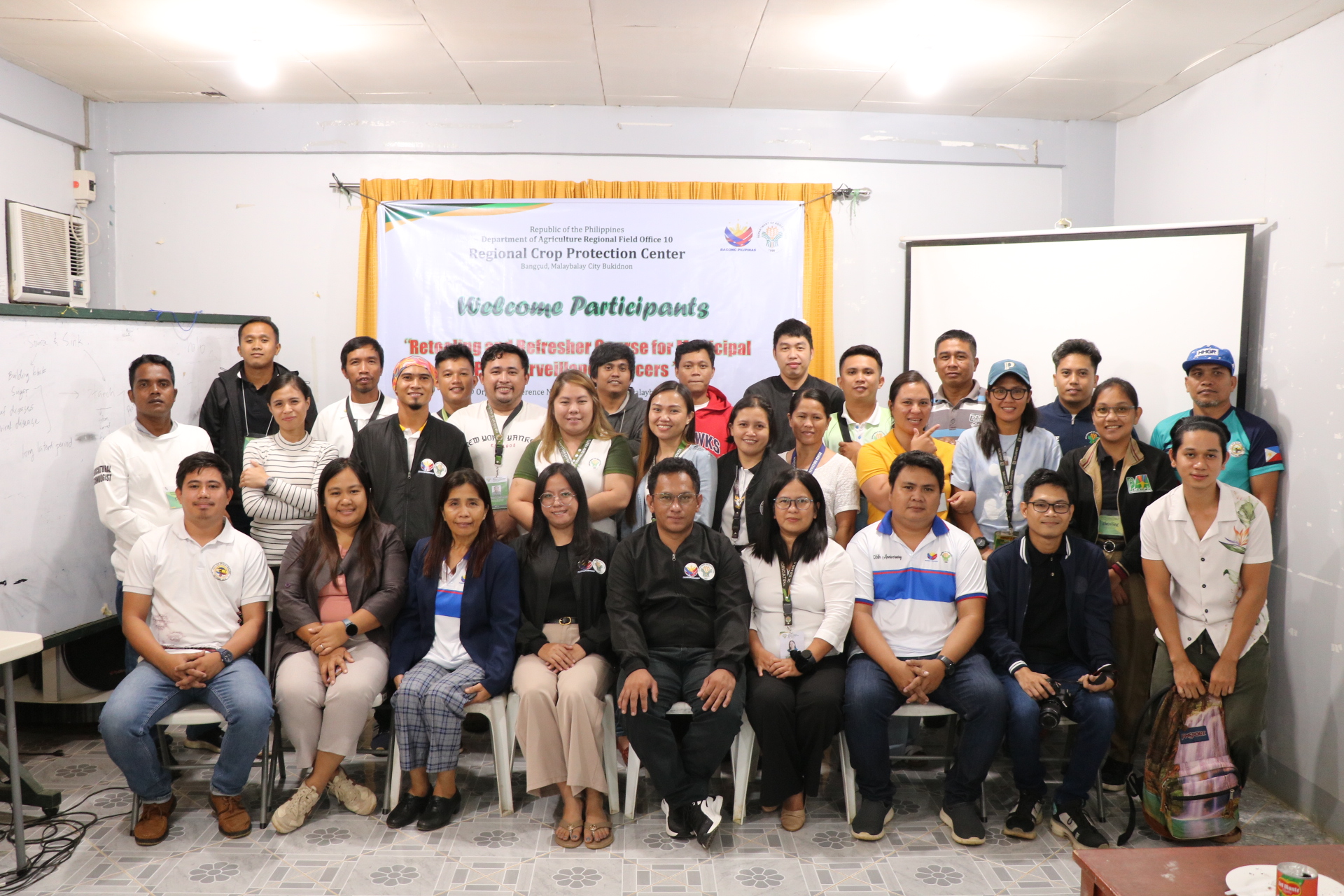
Agri-10 through the RCPC hosts a retooling and refresher course for the Bukidnon municipal surveillance officers.
DALWANGAN, MALAYBALAY CITY — With its aim to strengthen local monitoring and response against major insect pests and diseases, the Department of Agriculture – Regional Field Office 10 (DA-10) staged a two-day retooling and refresher course on the agency’s Pest Surveillance Program on October 28 to 29, at the Northern Mindanao Agricultural Crops and Livestock Research Complex (NMACLRC), in this city.
Spearheaded by the Regional Crop Protection Center, headed by Center chief Lucille T. Minguez, the activity convened municipal surveillance officers (MSOs) from 11 towns in the province of Bukidnon to reorient on the said program, and in particular, its components for a strategic implementation in the province.
NMACLRC chief Carmelito R. Lapoot said that the event capacitates agri personnel at the municipal level to take a more vigilant approach to pest and disease control, that recognizes and efficiently addresses new and recurring cases, minimizes damages to crops, and ensures agriculture remains a lucrative source of income.
Further, Lapoot, who also serves as the focal person for DA’s Adaptation and Mitigation Initiative for Agriculture (AMIA) program in region 10, emphasized the need to revisit the agency’s pest surveillance strategies in the context of climate change.
“We have to also consider climate change as a challenge [in pest surveillance], because an ever-changing climate also means a change in the manner in which common pests and diseases manifest, and we must address that accordingly,” he said.
Through its workshop component, Ruel S. Hadcan, Senior Science Research Specialist of the Department of Science and Technology – Science Education Institute apprised the participants on identifiers for common insect pests and diseases affecting vegetables, fruit trees, and plantation crops.
Through a field observation activity, said MSOs were also able to closely inspect symptoms and manifestations of previously tackled pests and diseases; and learn about the assessment protocol for infestation and infection of insect pests and pathogens.
Consistent with DA-10’s thrust for data digitization, participants were also briefed on an online monitoring system for plant insect pests and pathogens.
As a culminating output, participants presented their plans of action for 2025, relative to their function as MSOs, outlining proposed strategies for their respective LGUs.# (GDA)
